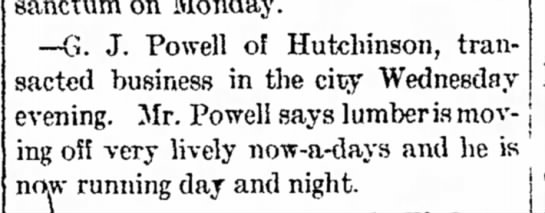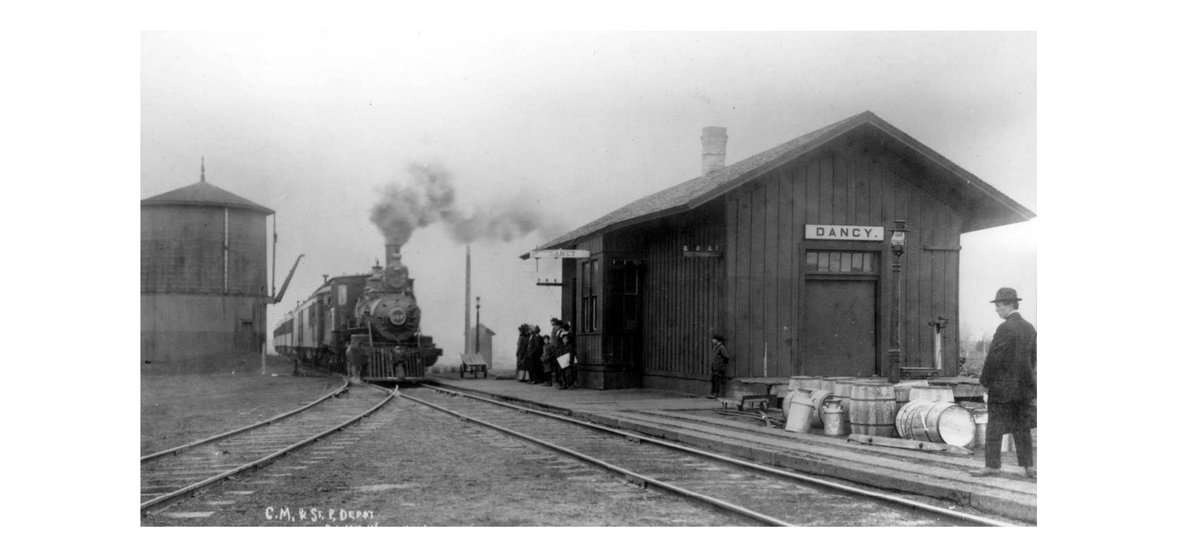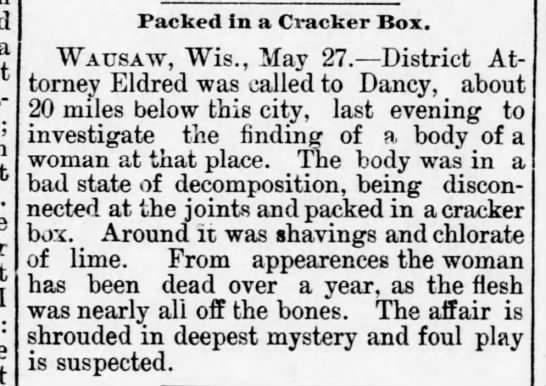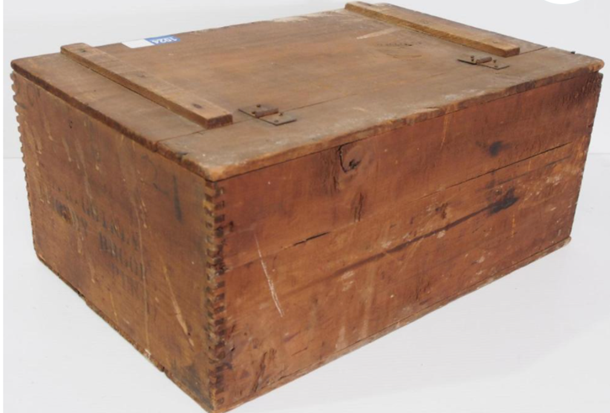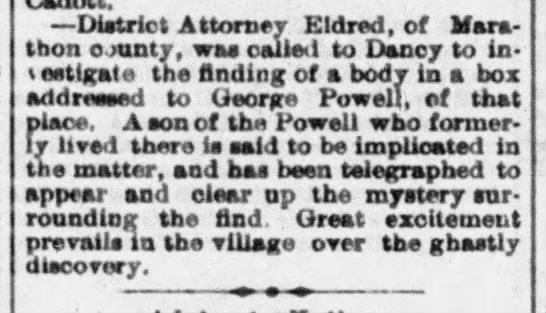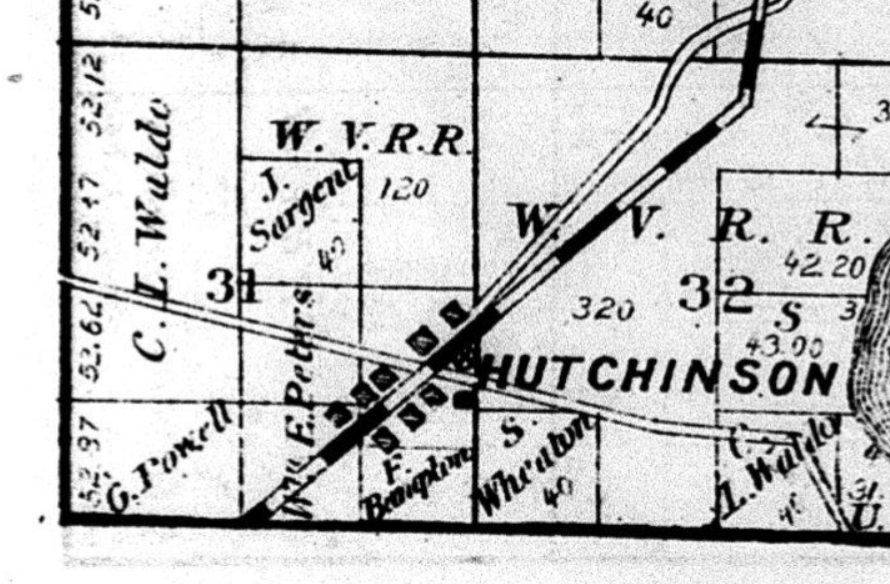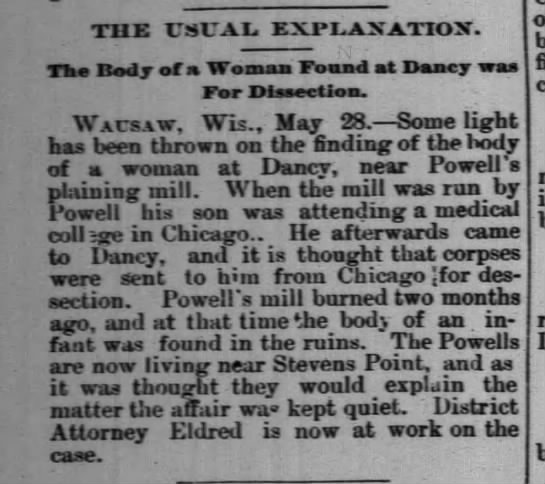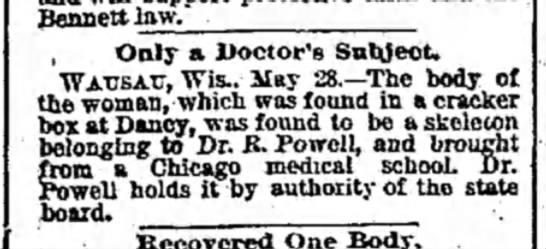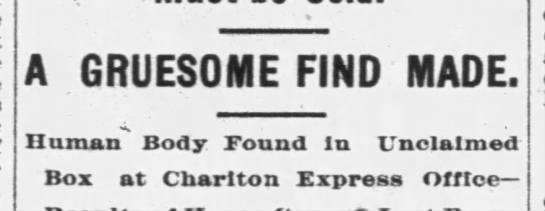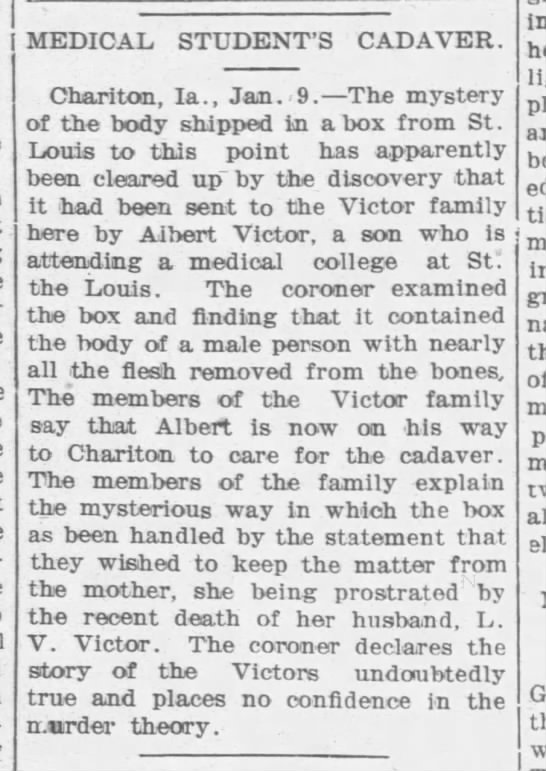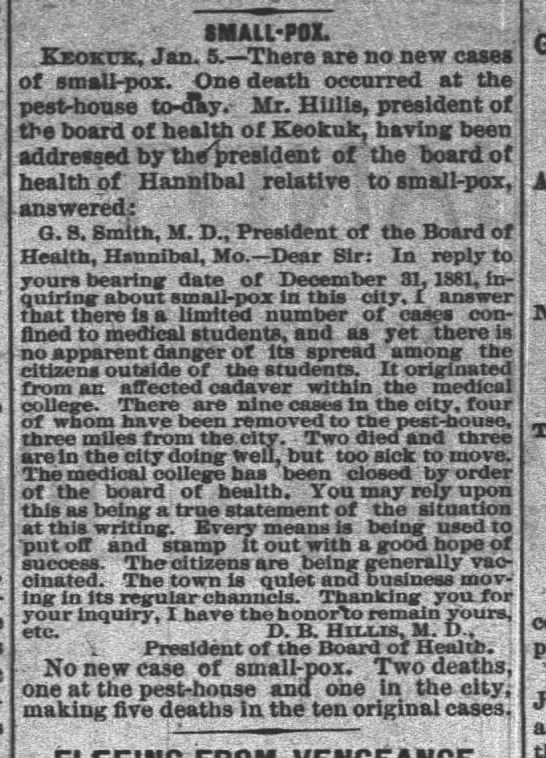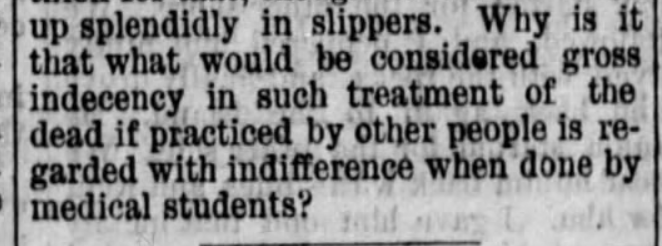Halfway between Stevens Point and Wausau, Dancy (a tiny town on the south side of Lake Du Bay) was an up-and-coming lumber town named Hutchinson in the late 1800s with a lumber mill, planing mill, and a depot on the Chicago Northwestern railroad. 1/11
CW: dead body
Memorial Day weekend in 1890, Dancy made the newspapers for a ghastly reason. The badly decomposed body of a woman had been discovered packed in a cracker box. It appeared that the woman had been dead for more than a year. 2/11
Memorial Day weekend in 1890, Dancy made the newspapers for a ghastly reason. The badly decomposed body of a woman had been discovered packed in a cracker box. It appeared that the woman had been dead for more than a year. 2/11
The box had been addressed to George Powell, the name of an English-born farmer and his son, the owner of the planing mill, according to census records from 1880. Their property was located southwest of Dancy (Hutchinson) on the railroad. 3/11
It turns out that the body was intended for Roscoe Powell, sent to him, likely via the railroad, from the medical school where he trained in Chicago. 4/11
According to his obituary, Roscoe had gone to the University of Illinois and Loyola, finishing his degree in 1887. He was a dentist for 58 years in Janesville, and his younger brother Frank practiced dentistry in Wausau. 5/11
Although this was an isolated incident, as the railroad spread across the United States, there are other stories like this one in Charlton, Iowa, in 1898. 6/11
In 1882 in Keokuk, Iowa, a smallpox infected cadaver actually led to an outbreak of smallpox among the medical students. 7/11
The bodies used for dissection in the 1800s were supposed to be those that had gone unclaimed, often the poor or criminals, although sometimes graves were robbed to fill the appetite of the medical colleges. 8/11
Disturbingly, there are many stories of the nonchalant and cavalier way these bodies were treated and used. I won't even copy and paste here, as they are truly awful. Even in death, and even in research, bodies should be treated with dignity. 9/11
A newspaper in Waterloo, Iowa in 1883 asks the question, "Why is it that what would be considered gross indecency in such treatment of the dead if practiced by other people is regarded with indifference when done by medical students?" 10/11
As a layperson, hearing these story sends chills up my spine. The more I learn about these shaky ethical foundations, the more I understand why people, esp. Black people and other marginalized people would be hesitant to trust doctors even today. 11/11

 Read on Twitter
Read on Twitter
